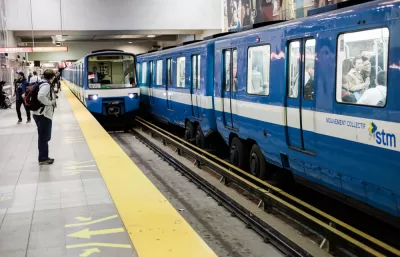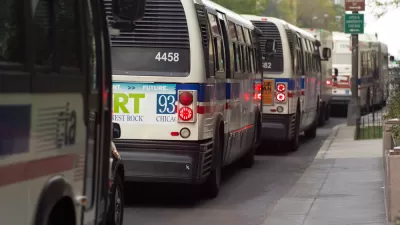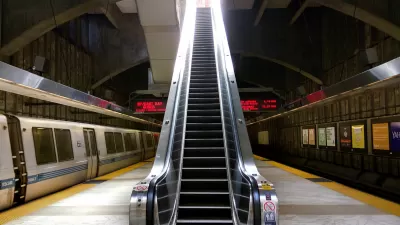"Canada looks a lot like much of the US, in terms of economic types, city sizes and ages, development patterns," Jarret Walker says. So why can't Americans keep pace with Canadian public transit?

Transit ridership is falling. The growth of ride share, low fuel costs and increased car ownership are all likely part of the reason, but it's possible to grow transit in this climate. "But notice the big picture: In a year when urban transit ridership fell overall in the US, it rose in Canada," Jarret Walker writes.
Canada is doing some things notably differently than the United States is, Walker writers: "Canadian cities just have more service per capita than the most comparable US cities. This results in transit networks that remain more broadly useful in the face of competition from other modes." Vancouver, where transit ridership has grown more than any other city in either country can be a particularly instructive example with its concentration of development around transit stations and prevalence of higher gas prices. "Notably, ride-hailing services like Uber and Lyft are not available in Vancouver due to provincial legislation," Walker adds.
To the United States, Canada is the "least foreign country" Walker argues. Americans should be looking to make their cities more like their Canadian counterparts.
FULL STORY: Why Does Ridership Rise or Fall? Lessons from Canada

Maui's Vacation Rental Debate Turns Ugly
Verbal attacks, misinformation campaigns and fistfights plague a high-stakes debate to convert thousands of vacation rentals into long-term housing.

Planetizen Federal Action Tracker
A weekly monitor of how Trump’s orders and actions are impacting planners and planning in America.

In Urban Planning, AI Prompting Could be the New Design Thinking
Creativity has long been key to great urban design. What if we see AI as our new creative partner?

Florida Seniors Face Rising Homelessness Risk
High housing costs are pushing more seniors, many of them on a fixed income, into homelessness.

Massachusetts Budget Helps Close MBTA Budget Gap
The budget signed by Gov. Maura Healey includes $470 million in MBTA funding for the next fiscal year.

Milwaukee Launches Vision Zero Plan
Seven years after the city signed its Complete Streets Policy, the city is doubling down on its efforts to eliminate traffic deaths.
Urban Design for Planners 1: Software Tools
This six-course series explores essential urban design concepts using open source software and equips planners with the tools they need to participate fully in the urban design process.
Planning for Universal Design
Learn the tools for implementing Universal Design in planning regulations.
Gallatin County Department of Planning & Community Development
Heyer Gruel & Associates PA
JM Goldson LLC
City of Camden Redevelopment Agency
City of Astoria
Transportation Research & Education Center (TREC) at Portland State University
Jefferson Parish Government
Camden Redevelopment Agency
City of Claremont





























